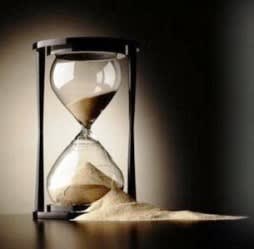Walk on the sands of an hourglass shattered. Bare feet blistered, bleeding as they drag on those little grains of a scorched earth. It is so cold, then so hot: cold because the heart is turned to ice, hot because the feverish mind is burning up.
The paradoxes of this place make no sense at all: one second the child is innocent and pure, the next it is grown into an adult, trying so desperately to survive. The cruel, harsh reality of this place is that we can all walk on the same sands and all head in different directions.
How is it possible, for two parts of one whole to walk in two separate ways? How can the mind think this and the heart feel that? Or, how can the mind not think at all and the heart feel even less? How can eyes wide open look around, see only the coals and be blind to the flame that forges us all as one?
It is a Wilderness in here, a desert, where the throat is so parched it cannot even cry, where the eyes are so dry they cannot even weep, where the lips are so chapped they cannot even beg.
It is a Wilderness and we live in it.
Right over there is a Promised Land, a place very difficult to relate to in this present state of fragmented disunity. In the Promised Land we don’t need those advertised wonders to distract us from who we truly are. In the Promised Land we truly are – our potentials realized, secure with our purpose and certain of our reason.
So what are we doing here, in a place so distorted that the things we worship are the things that separate us and the things that bind us are seen as outdated ideas harbored by a naïve few?
It is only in the Wilderness that we can build.
In heaven, a place whole and complete, we cannot chop down the trees to build up the dream. It is only on earth, where the hourglasses can be shattered, that man can achieve something timeless; only in a desert, where a love can be dry and a heart broken, do we have the power to bring the flower to bloom and the heart to completion. Only where we have the ability to destroy the walls can we also bridge the schisms.
It is in the Wilderness that Divinity first finds a home. After all, if we can build a home with an embracing glow, an orchard with the sweetest fruit, in a place antithetical to anything embracing and adverse to anything sweet, then we can accomplish anything and we can build everything!
For the Promised Land to be reached we all must fulfill our own promise; and with the challenges of a Wilderness are we spurred to build a home for the Divine.
The Promised Land, much more than geographical, is a place of peace and unity; it is in the journey through the Wilderness that we can – and shall! – become peaceful, complete and unified.
Mendel Jacobson is a writer, poet and journalist living in Brooklyn. His weekly poetry can be seen at jakeyology.blogspot.com
The words of this author reflect his/her own opinions and do not necessarily represent the official position of the Orthodox Union.
